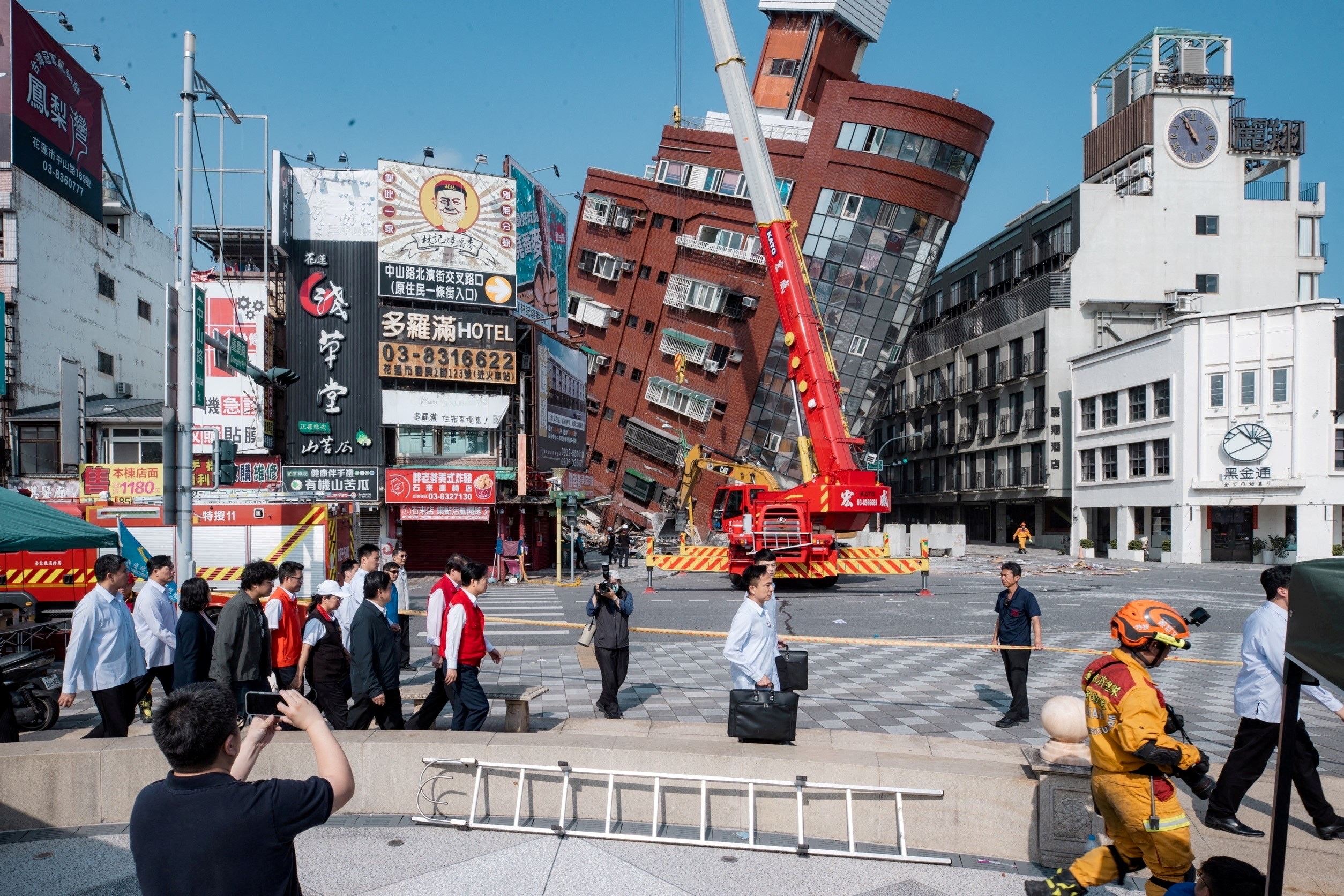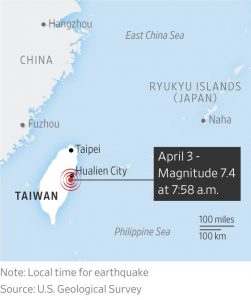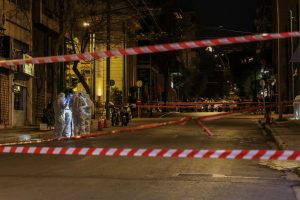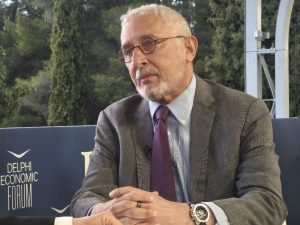The strongest earthquake to hit Taiwan in 25 years killed at least nine people and damaged roads and buildings, including some that partially collapsed, on the island’s east coast.
The quake, which was centered about 11 miles south of the city of Hualien, struck just before 8 a.m. local time with a preliminary magnitude of 7.4, according to the U.S. Geological Survey.
All of the deaths were recorded in Hualien County, with more than 800 injured in Hualien and other parts of Taiwan, Taiwan’s National Fire Agency reported.
Authorities said more than two dozen apartment towers, houses and other buildings were severely damaged, with more than 130 people trapped.
Rescuers pulled 22 people from a nine-story building in central Hualien with a rounded-glass exterior that tilted perilously on its side, crushing shops on the ground floor. At least one person in the building was still missing, authorities said.
Officials also reported burst water pipes and loss of electricity in some areas near the epicenter. The quake caused the collapse of a roadway linking Hualien with cities to the north and forced several rail lines to pause operations.
The office of Taiwan’s President Tsai Ing -wen said she had dispatched the military to the area to help with disaster relief.
Lai Ching-te, Taiwan’s president-elect, visited Hualien and spoke with rescuers. “The most important thing at the moment and the highest priority is to save people,” said Lai, who will be inaugurated in May .
The quake was the strongest to strike Taiwan since 1999, according to a search of the USGS database. The initial quake was followed by powerful aftershocks of magnitude 6.5 and 5.7, the USGS said.
Images carried by local media showed the collapse of a roadway linking Hualien with cities to the north.
Chang Li-hsin, a restaurant owner in central Hualien, was preparing to open when the earthquake struck.
“Tables and chairs suddenly began shaking,” she said. “The menu hung on the wall was shaken off, and a crack appeared in the wall.”
Chang shouted to her husband in the kitchen and the couple ran out of the restaurant. Dozens of people were already on the street.
“I can’t remember the last time there was a quake of this magnitude,” Chang said.
A few hundred yards away, Chang said, she watched as rescuers arrived to pull people from the tilted building with the curved-glass facade. It had apartments, a small hostel with cafes and snack shops on its ground floor, she said. A group of firefighters set up a ladder and began prying open a window fitted with iron security bars to rescue the people trapped inside.
Hualien, a city of about 100,000 people, sits between the steep mountains of Taiwan’s east coast and the sea. The city and the larger Hualien County that surround it experience frequent earthquakes. A magnitude 6.4 earthquake centered in Hualien in 2018 killed at least 17 people and left some buildings severely tilted. The city is located just south of Taroko National Park, a leading destination for tourists, with a deep gorge along the Liwu River where it cuts into the mountains.
“Foreign visitors, maybe they are a little nervous because they have never seen anything like this,” said Huang Hui-chih, a coffee-shop owner in Hualien who had to clear dozens of shattered cups and glass items after the quake hit. “But Hualien people, we’ve had this experience.”
In 1999 a magnitude-7.6 earthquake in central Taiwan killed more than 2,400 people and injured more than 11,000. It was Taiwan’s deadliest since a quake in 1935.
Those killed in Wednesday’s quake include three hikers who were hit by a rockslide, two road workers hit by landslides, a person killed in a mine, two people in vehicles and one who was believed to have died in a collapsed building, according to Fu Kun-chi, a legislator from Hualien.
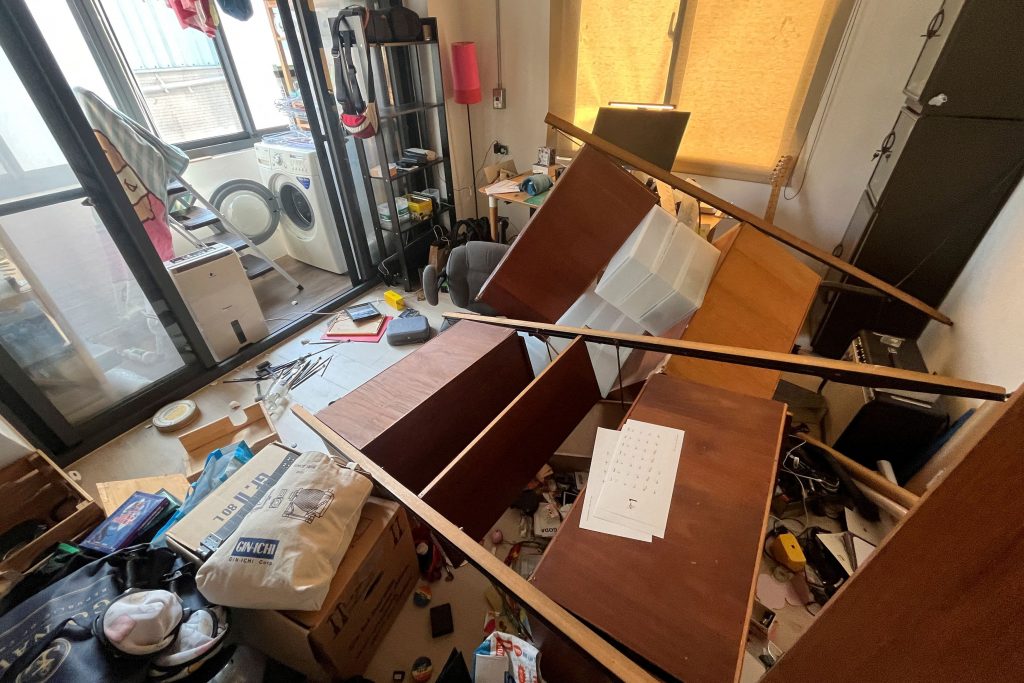
A view of a damaged apartment following an earthquake offshore, in New Taipei City, Taiwan April 3, 2024. REUTERS/Fabian Hamacher TPX IMAGES OF THE DAY
The Taiwan Railway Corp. said the line between Jiaoxi and Fenglin in eastern Taiwan was halted and that a large rockfall was discovered on the line between the Horen and Chongde stations, near Hualien. The eastern main line is expected to reopen on Thursday morning, Lai said.
Taiwan’s high-speed rail system said about 20 of its trains were affected, but there were no reports of damage or injuries.
Ma Chin-hsiung, a 52-year-old Hualien resident, said Wednesday’s earthquake appeared to do more damage to the city’s transportation links with the rest of the island compared with other recent quakes, pointing to reports of severe damage to the winding seaside road that runs northward from Hualien to the neighboring county of Yilan.
Ma said he wasn’t hurt by the quake, but the shaking knocked his television onto the floor and broke it. He said he went ahead with his grocery shopping and found that a wall had collapsed at the market he frequents, though many vendors were still operating.
“There are too many unpredictable situations, but we must still do the necessary shopping,” Ma said.
The metro system in Taipei, Taiwan’s capital, said it was halting operations according to its standard procedure to carry out checks of its system. No problems had been found so far, it said.
The world’s largest producer of advanced semiconductors , Taiwan Semiconductor Manufacturing , said that workers were returning to their stations after being evacuated from some of its semiconductor-fabrication plants following the quake. The company’s safety systems are operating normally and it is confirming details of the quake’s impact, TSMC said.
TSMC is based in Hsinchu, near Taipei, and its biggest plants are all located on the western side of the island, opposite where the quake struck. TSMC produces the chips that run Apple ’s iPhones and Nvidia ’s GPUs.
Jacob Helberg, a member of the U.S.-China Economic and Security Review Commission, a congressional research and advisory panel, said he was in Taipei on a work trip when he got caught in the earthquake. He said he was preparing for an interview at an outdoor patio on the sixth floor of the Mandarin Oriental hotel in central Taipei when it hit, and he returned to his room to find it strewn with smashed ornaments, glass and other debris.
He said he was struck by how calmly people responded.
“The city resumed its normal activities very quickly,” he said. “People are incredibly resilient in Taipei.”
Write to Austin Ramzy at austin.ramzy@wsj.com and Joyu Wang at joyu.wang@wsj.com
